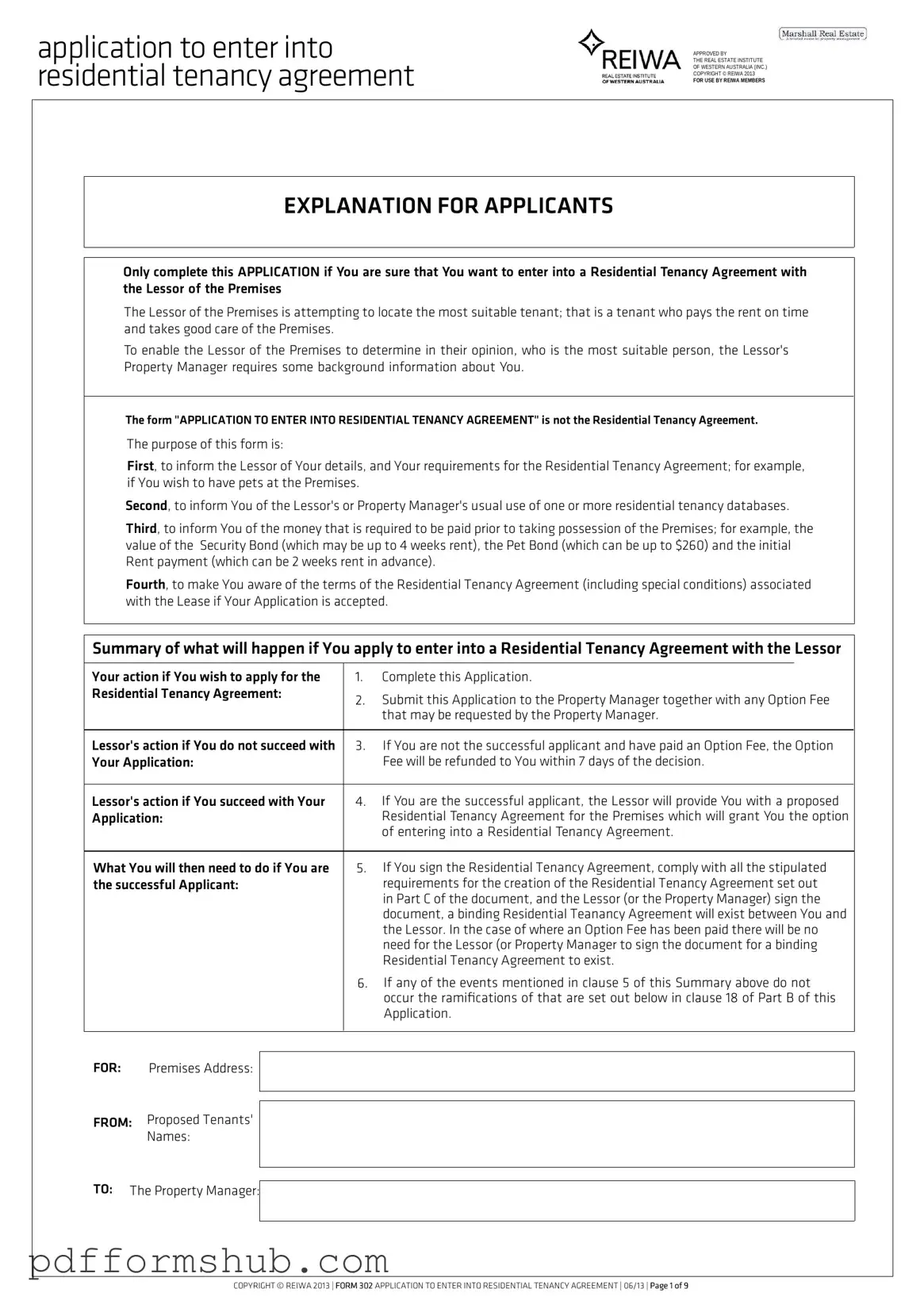Fill in Your Reiwa Tenancy Application Form
The Reiwa Tenancy Application form is a document used by individuals seeking to enter into a residential tenancy agreement. This form helps landlords, known as lessors, find suitable tenants who will pay rent on time and care for the property. By providing essential information about yourself and your requirements, you can initiate the process of securing a rental home.
If you’re ready to take the next step, fill out the form by clicking the button below.
Customize Form

Fill in Your Reiwa Tenancy Application Form
Customize Form

Customize Form
or
Free PDF Form
Short deadline? Complete this form now
Complete Reiwa Tenancy Application online without printing hassles.